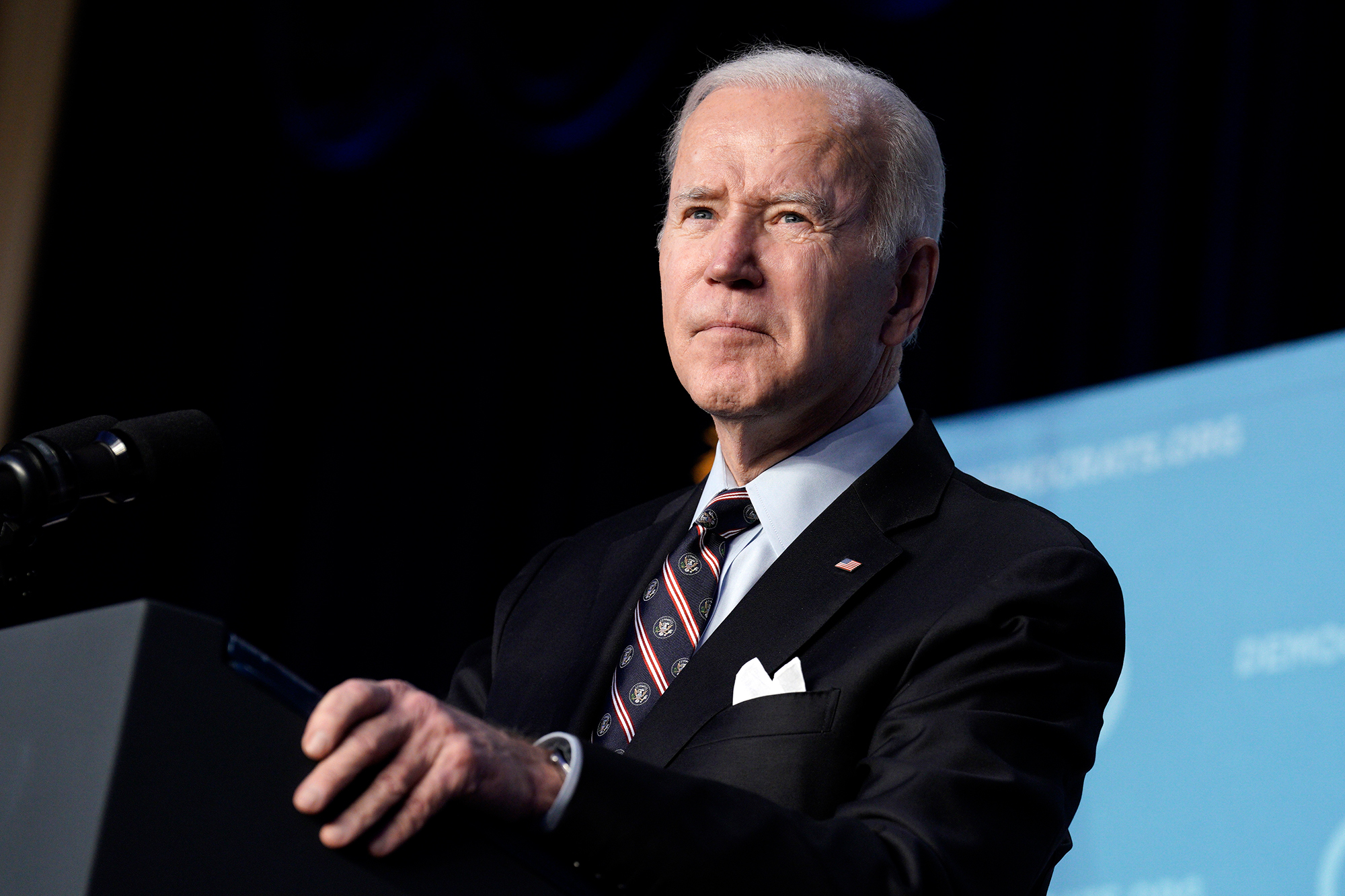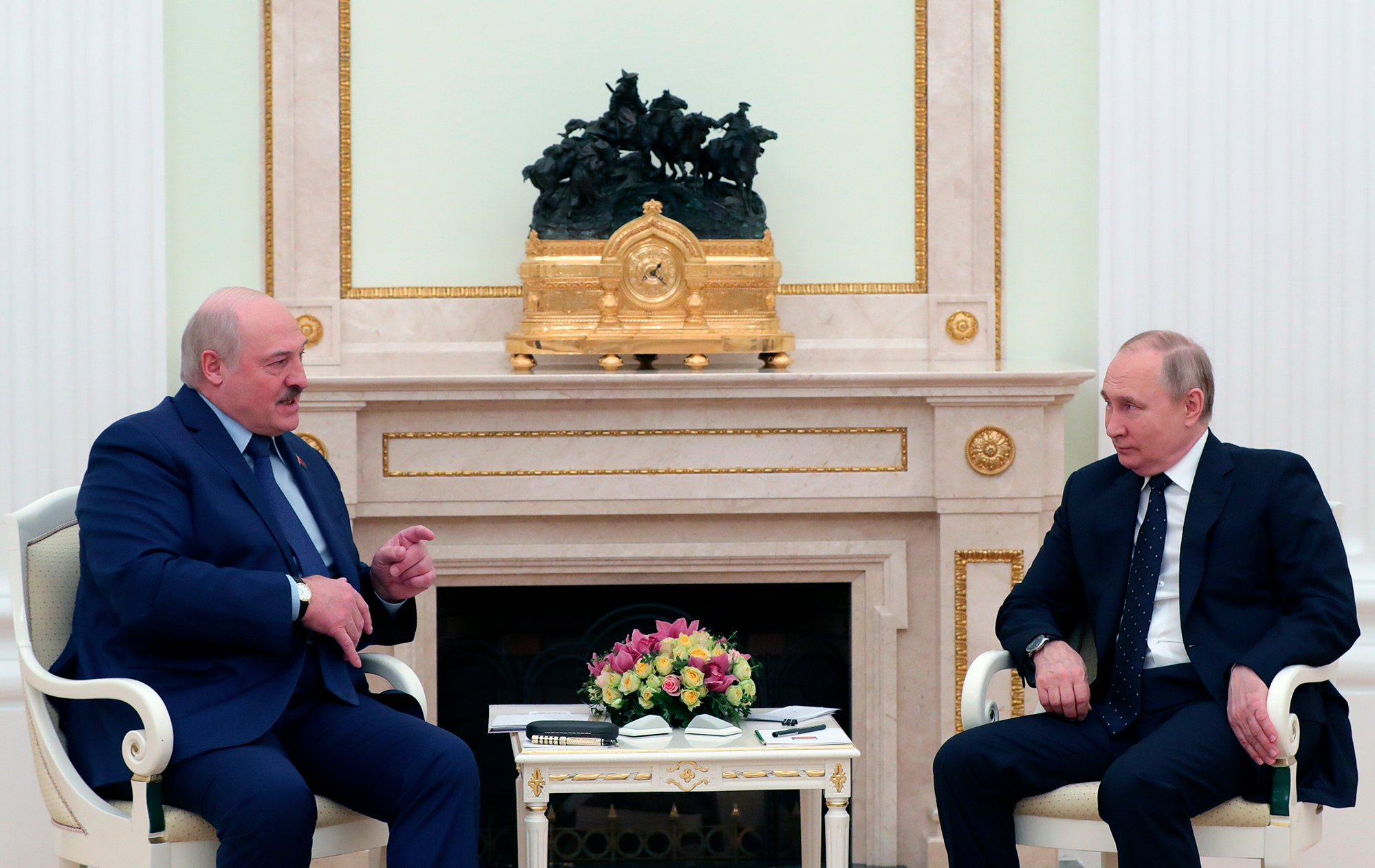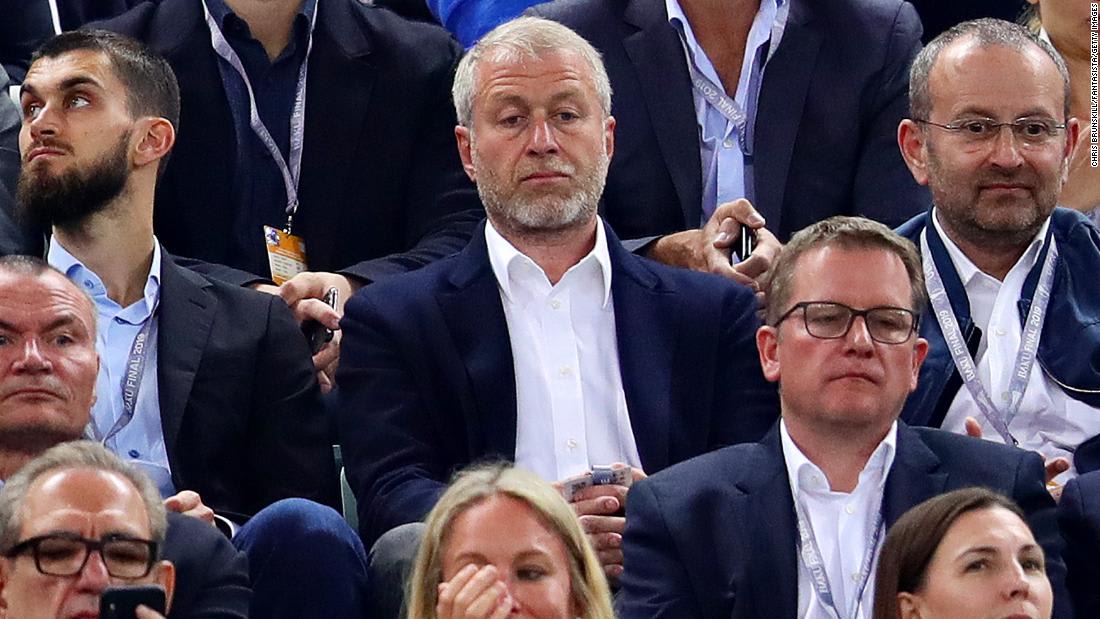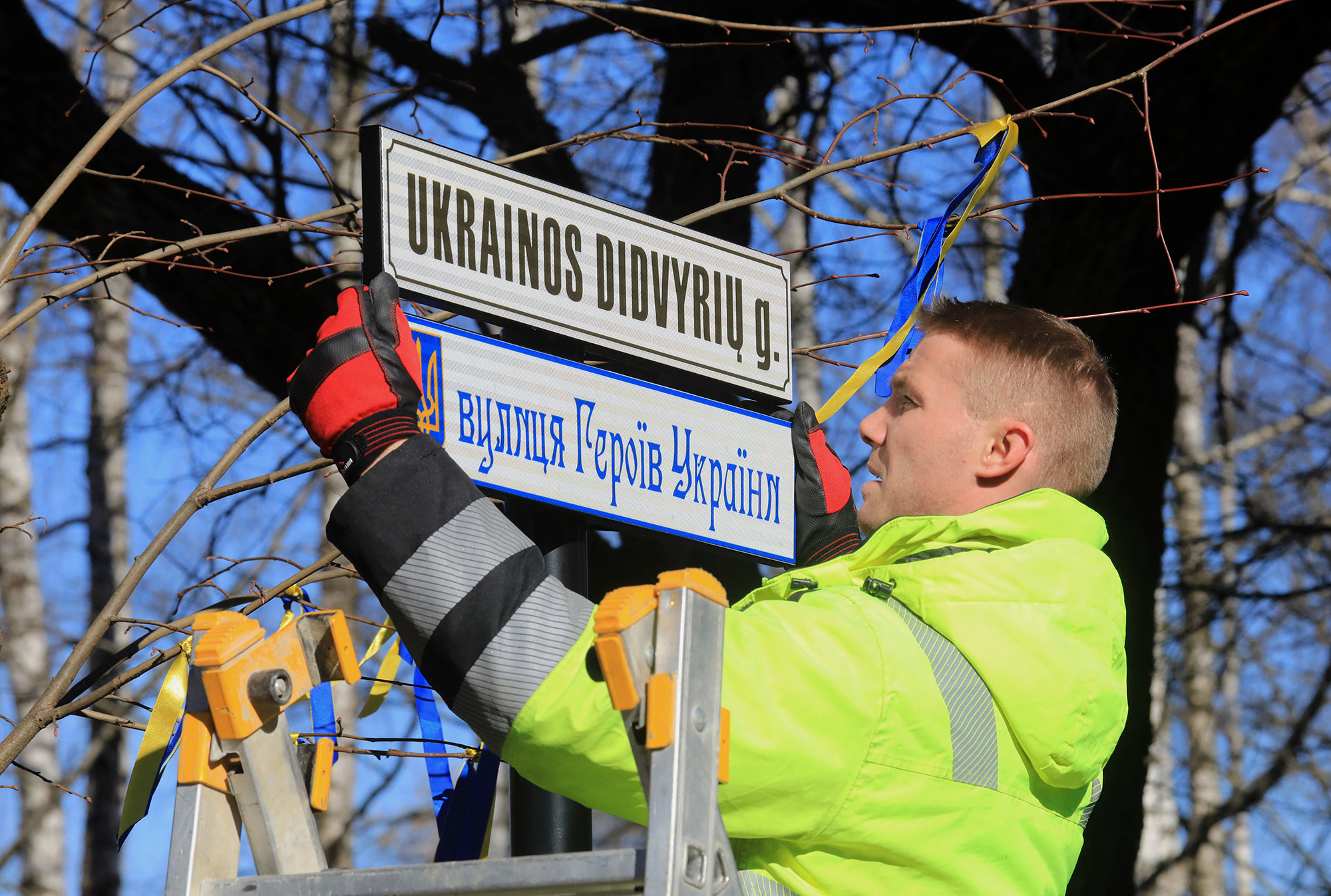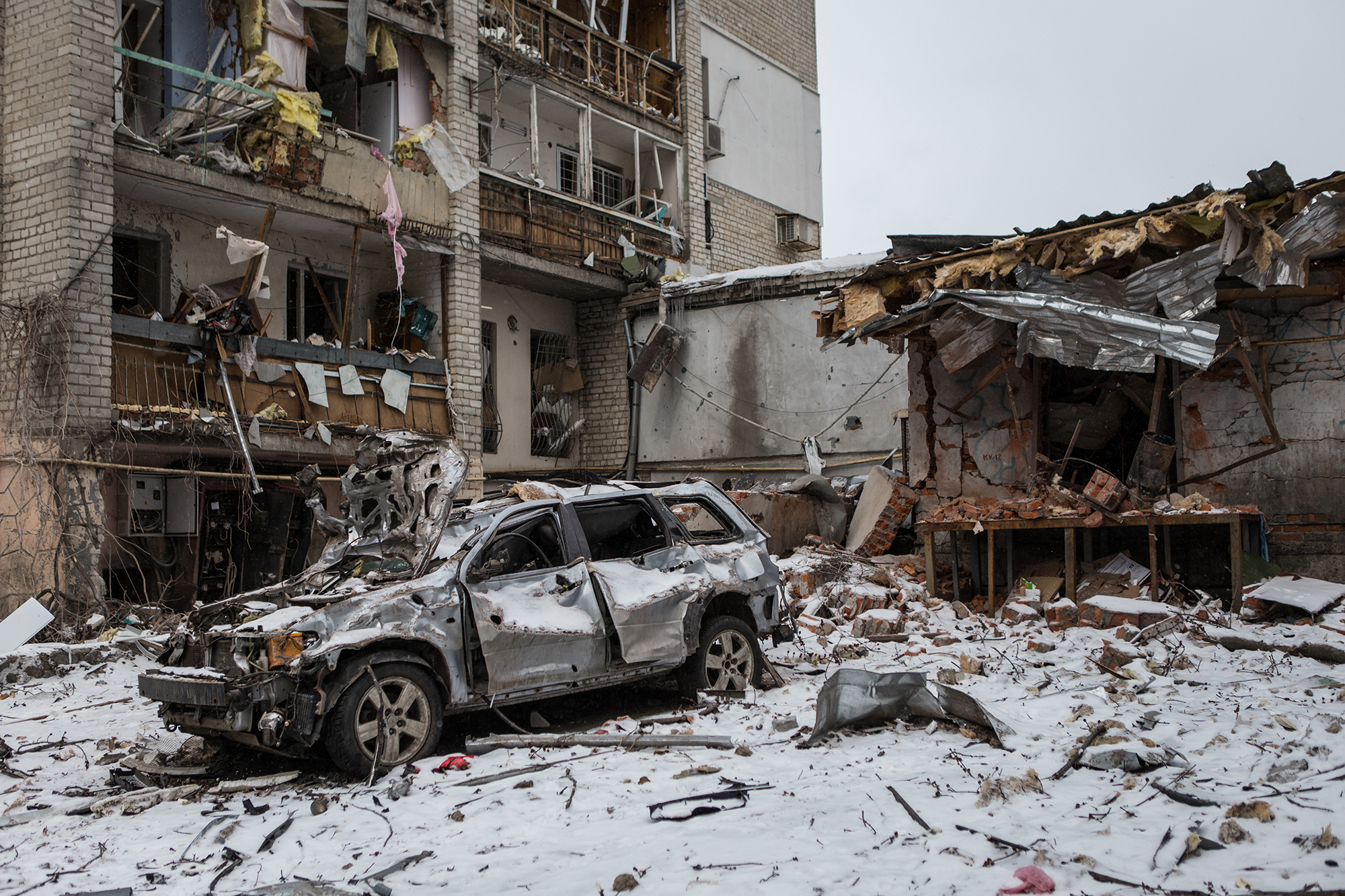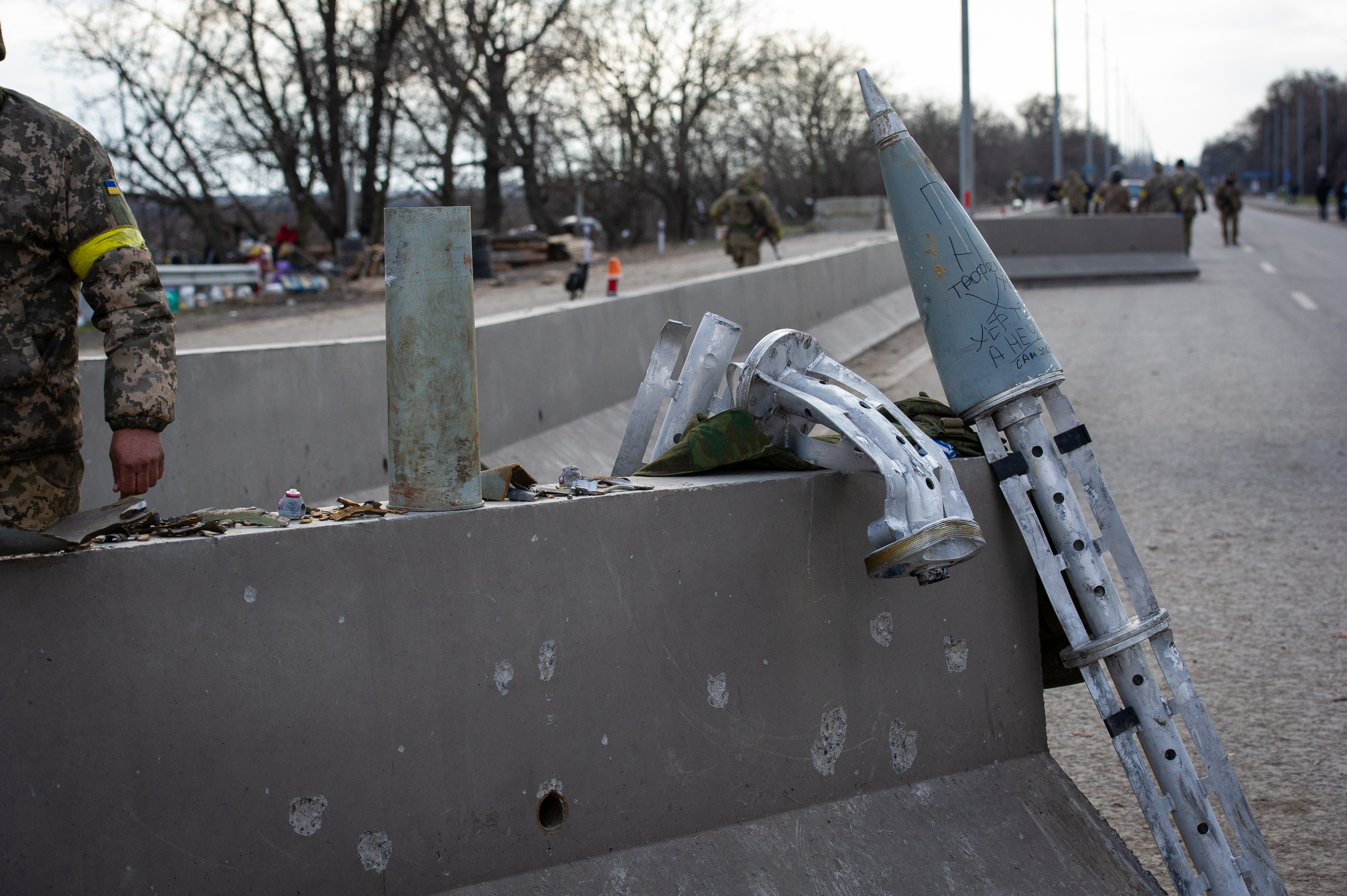Russian forces launched multiple missile attacks early Friday on a wide range of targets across Ukraine, causing substantial damage in and around the central city of Dnipro, and also attacking airports in the far west of the country, which had previously been spared from the conflict.
There was substantial damage to the airport at Lutsk in northwestern Ukraine, some 70 miles from the Polish border. The Governor of Volyn region said four missiles had been fired from a Russian bomber and two people were killed. Plumes of smoke also rose from the military airfield at Ivano-Frankivsk, western Ukraine, which was struck by missiles.
The Russian Defense Ministry said Friday: “high-precision long-range weapons attacked Ukraine's military infrastructure.
The military airfields in Lutsk and Ivano-Frankovsk were put out of action."
Closer to Kyiv, fighting has intensified to the northeast and east of the capital, after the Ukrainians successfully intercepted and attacked an advancing Russian tank column on Thursday. That front is still very active.
An overnight airstrike in the Brovary district just east of Kyiv caused no casualties, according to Kyiv authorities.
Ukrainian authorities also reported a missile strike in the town of Baryshivka overnight, some 45 miles east of the capital. According to authorities, 60 apartments were damaged along with four apartment buildings and 10 houses.
According to Ukraine's Operational Command East, a missile strike on the outskirts of Dnipro killed one civilian and damaged a primary school building, apartment buildings and a shoe factory.
"All components of Ukraine's defense forces, state authorities and local governments are working to eliminate the consequences of another missile attack on Ukraine's civilian infrastructure and provide assistance to the victims," it said.
The Russian column that had sat for nearly two weeks outside Kyiv has now dispersed, according to Maxar satellite imagery from Thursday. The forces appear to be regrouping.
Thomas Bullock, senior analyst at Janes, told CNN that, "Ukraine’s tactic of targeting supply lines has worked well especially during the first 5-10 days of the war. This was partially down to Ukrainian tactics and partially down to how Russia was operating."
"During the first couple of days of the war Russian forces appear to have prioritized rushing forward to secure objectives quickly. This means they weren’t advancing as a coherent frontline securing territory as they go," he said.
"This effectively allowed Ukrainian forces to slip behind Russia’s advanced mechanized units and attack logistics columns traveling on unsecured roads in the rear.
"It’s unclear how effective this tactic will be as Russia begins to reorient its forces for a longer war following their failure to secure a quick victory," Bullock added.
